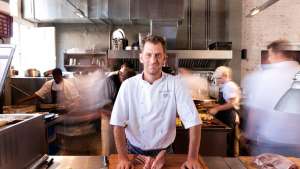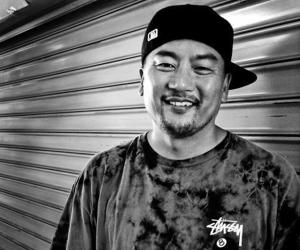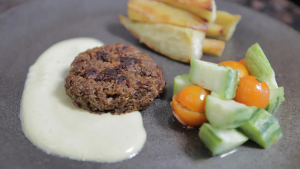Thanks to the success of Kogi, the much-celebrated Korean taco food truck, Korean-American chef Roy Choi is credited as the "godfather of the food truck movement". The classic Kogi combination of high and low food culture placed him in Food & Wine magazine's Best New Chefs of 2010.
But Choi prefers to think of himself as a kind of social designer. He pays a lot of attention to how we design our food systems in connection with the greater whole of contemporary society. Kogi was the culmination of his desire to make gourmet food more accessible, but its success was part and parcel of wider social shifts – in Korean and Latino culture, in the city of Los Angeles and in the rise of social media such as Twitter. All of these elements were part of Choi’s meticulous and well-considered design.
Until Kogi, Choi’s life had been lived according to a template. “I lived a straight-forward life: I was a chef and I studied. I practised my craft, I built a family, I did the best I could and I moved up the ladder. I ended up running really elaborate kitchens,” he says.
But despite following the blueprint, Choi was laid off (“I really got fired, but laid off sounds better”). In that moment of despair, a friend called him up to start a taco truck together and the food truck revolution began. “We went out on a mission,” he says. “We were like The Goonies really.”
That mission began with Choi targeting club goers and being an early adopter of Twitter. He leapt onto the social media platform, tweeting the location of Kogi as it moved around the city. “We were almost just throwing these messages in a bottle out to the universe. We had no idea who was out on the other end,” he says. It turned out that hordes of hungry people were. The Kogi truck would pull up to a location and find around 700 people waiting.
This was 2008. “We started [outside nightclubs] at midnight, serving this taco which tasted like the city.”
This “city-tasting” food is a result of the role that minority cultures play in LA. A minority himself, Choi believes these cultures permeate and infect the mainstream with their food, style, habits and design.
“LA is a city that is extremely fresh because we have so many immigrants coming through and so many different cultures coming through. We don’t have these long-cemented ideals of history built within us. Everything is up for change because so many people just arrived.”










